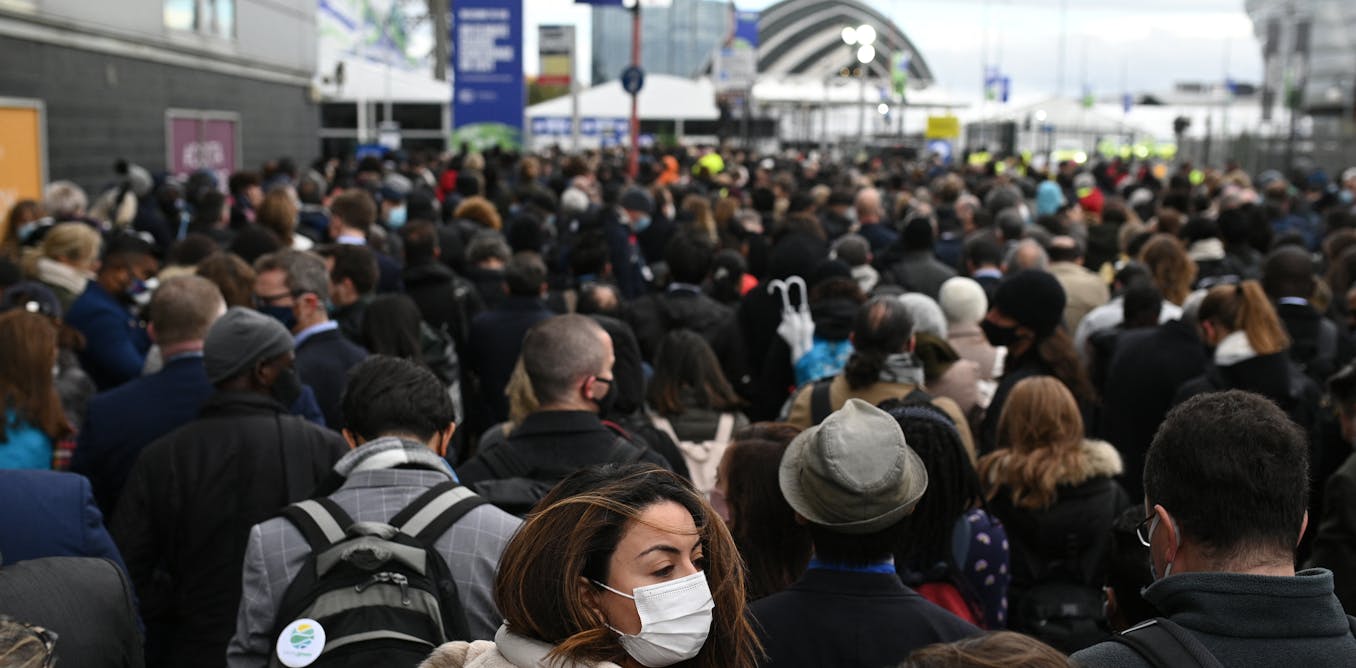Title: Why Trump’s Economy Hasn’t Cracked Under Tariffs (Yet): An Analysis
In April, when President Trump unveiled his tariff strategy, economists across the nation anticipated a sharp downturn in the U.S. economy. However, against these dire predictions, the economy has demonstrated surprising resilience. The Wall Street Journal’s recent video, "Why Trump’s Economy Hasn’t Cracked Under Tariffs (Yet)," delves into this unexpected durability amidst rising tariffs and fluctuating market conditions.
The video begins by examining the initial reaction to Trump’s tariff announcement. Many analysts warned that increased import duties could lead to significant inflation and economic instability. Yet, as the months rolled on, inflation rates defied expectations, remaining relatively stable. This resilience prompts a closer look at the underlying economic factors at play.
Assessing Inflation and Economic Indicators
At the heart of the video’s discussion is the inflation rate, a critical metric closely tied to the effectiveness of tariffs. Although there were fears that tariffs would trigger a substantial price increase for consumers, the reality has been less severe than anticipated. This stability raises intriguing questions about the underlying strength of the U.S. economy and its ability to absorb economic shocks.
However, not all indicators have remained rosy. A notable weakness in the July jobs report was highlighted, signaling challenges within the labor market. As the report revealed slower job growth, it signaled potential vulnerabilities that could affect consumer confidence and spending—an essential component of economic health.
Additionally, the video addresses Gross Domestic Product (GDP) growth, which has shown signs of slowing in the first half of 2025. This decline raises concerns about the long-term trajectory of the economy. The discussion of GDP is critical as it reflects both consumer and business activity, giving a comprehensive view of economic performance.
Looking Ahead: What’s Next?
As the Wall Street Journal outlines, the economy’s strength may face significant tests in the upcoming months. Given the stagnation in job growth and the uncertainty surrounding GDP, analysts are left pondering the sustainability of the current economic landscape. Will the resilience observed so far hold up, or will the mounting pressures of tariffs and market conditions begin to chip away at this apparent stability?
Viewers of the video are invited to consider these pivotal questions as policymakers navigate a complex economic environment. With tariffs still looming and market indicators showing mixed signals, the coming months will be crucial in determining the long-term effects of Trump’s tariff policies on the U.S. economy.
In a world where rapid changes can shift economic landscapes overnight, the Wall Street Journal’s breakdown provides a timely perspective on an evolving story that continues to capture the nation’s attention.
Watch the video by The Wall Street Journal
Video “Why Trump’s Economy Hasn’t Cracked Under Tariffs (Yet) | WSJ” was uploaded on 08/07/2025 to Youtube Channel The Wall Street Journal





































One thing that seems to be ignored is that once prices go up they will likely not come backdown even if tariffs are erased. Corporate greed will not allow it.
The only soft landing is always because you have means.
Businesses stocked up ahead of tariffs, but when the warehouses empty out of the old new stock, inflation will take off and recession will arrive hard. But when you control the economic data reporting and it is bent to fit the narrative you will get the get the American "let them eat cake" moment.
We finally tax the rich through tariffs, and they turn around and pass that down to us.
Lets say due to tariff a garment from India increases in msrp by 50% and is now 10% more than garments from other countries or locally sourced, won't they match the price of Indian garments because they have no competitition? Sure Indian product may seize to sell, but the US consumer with pay more without choice. Still rest of the world is an option for Indian seller. Who actually gets affected here?
I think this report is preempt. The Tariffs getting implemented just now. Its kind of wait n watch
Wall Street journal is so discredited.. lol everything you say can’t be taken seriously.
What a useless video
He created uncertainty, and is jacking up prices on everything. I mean just how stupid can he be.
Cracked? It’s already broken. The question now is it irreparable broken.
People are selling everything to leave the UK and USA Taxes, immigration, culture, quality of life has declined, so people are leaving.
Why aren't we speaking honestly about how the trump admin is running the economy as a centrally planned economy? His admin is controlling our economy with tariffs, bullying/ intimidating ceos/companies, firing objective data officials to hide bad data, etc. The republicans call democrats communists when in fact it's a republican admin and congress who are actually behaving like a communist regime. Oh wait it's right wing media like faux news, ny post, and even this channel. Rupert Murdoch, an immigrant, has created such a horde of brainless zombies it is going to destroy our economy while he enriched himself beyond measure.
Welcome to MAGAville.
Are you KIDDING me? I just got back from shopping – any bill was at least 30% higher than it was in January. Seriously – you're joking about "defying expectations"
Haters must be blind because they can't see Trump winning streak 🤣🤣🤣
USA IS GOING TO RECESSION
Oh, the cracks are showing if you go buy groceries.
How does anyone with a fully functioning brain not realize the US consumer is funding these tariffs? This could slow buying even more, lead to layoffs, & put us in a full blown recession. We have a bunch of dopes leading us off a cliff!
The Trump Depression will be the Terminal Depression.
No growth, combined with inflation is a recession. Wait until the AI stock market bubble breaks.
The power of yet ✨✨✨
we will see.
Epstein files…
With Trump administration "cooking the books" expect better inflation and cost of living numbers. Remember during COVID19 when Trump said "If you don't count the numbers it's good". When businesses and investors realize what is going on everyone will need to hold on. Consistent record keeping is the key.
Because takes time… From 6 to 12 months after full implementation, that is actually starting this August…
The grifters knew there was some built in durability and flex in our system. They could cause market uncertainty and skim off the top. It's just amazing that real business can't see the disaster That's coming, that they signed up for.
Only because he keeps doing the taco dance.
We are watching the decline of the USA. It’s happening right in front of your eyes. Just because these things don’t happen at lightning speed, people think they are not happening and all will be good. It won’t. You will all get poorer.
Yet
Big companies are also holding back and will start to see their competition ( small businesses ) struggle and go out of business if they don't raise their prices. Small businesses have small profit margins- they can't take a loss in the cost of goods.
Shareholders will soon be insisting on passing the tariffs loss to the consumers.
Not sure how any reasonable person would believe that businesses will just take the loss, when there is an obvious way for them to not take a loss.
I think that they will also creep the prices up, to not sticker shock the customers. But if the plan is to bring back manufacturing – the prices have to go up. Because the reason they left is that the cost of goods is below what it would cost to manufacture here.
this is just a transfer of wealth that mimics that of China in the 90s – by lowering their currency, they are able to take advantage of buying back stocks. Neoliberalism continues on
U.S. trading partners race to secure exemptions from Trump’s tariffs: https://on.wsj.com/4lhJAQb